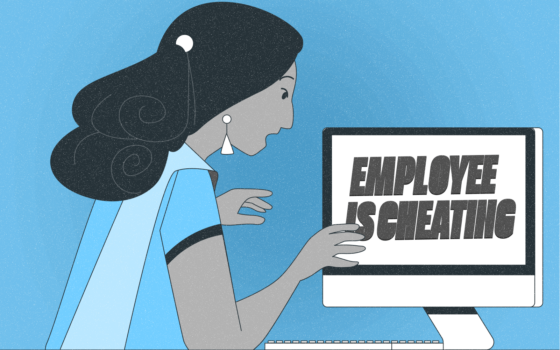Work-Life Coordinator
Understanding the Role of a Work-Life Coordinator
In today's fast-paced corporate world, the concept of work-life balance has gained significant traction. As organizations strive to create healthier, more productive work environments, the role of a Work-Life Coordinator has emerged as a crucial component in fostering employee well-being and satisfaction. This comprehensive guide delves into the intricacies of this vital position, exploring its responsibilities, impact, and growing importance in modern workplaces.
Defining the Work-Life Coordinator Role
A Work-Life Coordinator, sometimes referred to as a Work-Life Balance Specialist or Employee Wellness Manager, is a professional responsible for developing, implementing, and overseeing programs and initiatives that promote a healthy balance between employees' professional and personal lives. This role sits at the intersection of human resources, employee wellness, and organizational development, serving as a bridge between the company's goals and the well-being of its workforce.
The primary objective of a Work-Life Coordinator is to create an environment where employees can thrive both in their careers and personal lives, ultimately leading to increased job satisfaction, productivity, and retention. This multifaceted role requires a unique blend of skills, including strong communication, program management, data analysis, and a deep understanding of human behavior and organizational dynamics.
Key Responsibilities of a Work-Life Coordinator
The duties of a Work-Life Coordinator can vary depending on the organization's size, industry, and specific needs. However, some core responsibilities typically include:
1. Program Development and Implementation
One of the primary functions of a Work-Life Coordinator is to design and execute programs that support employee well-being. This may involve:
- Creating flexible work arrangements, such as telecommuting options or compressed workweeks
- Developing wellness initiatives, including fitness programs, mental health resources, and stress management workshops
- Implementing family-friendly policies, like parental leave programs or childcare assistance
- Organizing team-building activities and social events to foster a sense of community
2. Policy Development and Advocacy
Work-Life Coordinators often play a crucial role in shaping company policies that promote work-life balance. This includes:
- Researching best practices and industry trends in work-life balance initiatives
- Collaborating with HR and leadership to develop and refine policies
- Advocating for employee needs and concerns related to work-life balance
- Ensuring compliance with relevant laws and regulations
3. Employee Education and Communication
Effective communication is essential for the success of work-life programs. Work-Life Coordinators are responsible for:
- Conducting workshops and training sessions on work-life balance topics
- Creating and distributing informational materials about available resources and programs
- Providing one-on-one guidance and support to employees seeking work-life balance solutions
- Facilitating open dialogue between employees and management on work-life issues
4. Program Evaluation and Improvement
To ensure the effectiveness of work-life initiatives, coordinators must:
- Collect and analyze data on program participation and outcomes
- Conduct employee surveys and focus groups to gather feedback
- Identify areas for improvement and implement necessary changes
- Report on the impact of work-life programs to stakeholders and leadership
The Impact of Work-Life Coordination on Organizations
The implementation of effective work-life balance programs, spearheaded by a dedicated coordinator, can have far-reaching benefits for both employees and organizations. Some key impacts include:
1. Increased Employee Engagement and Productivity
When employees feel supported in managing their work and personal lives, they are more likely to be engaged and productive. Work-Life Coordinators play a crucial role in creating an environment where employees can focus on their work without undue stress from personal obligations. This increased engagement often translates to higher quality work and improved efficiency.
2. Enhanced Talent Attraction and Retention
In today's competitive job market, work-life balance has become a significant factor in attracting and retaining top talent. Organizations with robust work-life programs, managed by skilled coordinators, often have a distinct advantage in recruiting efforts. Moreover, employees who feel their personal needs are respected and accommodated are more likely to remain loyal to their employers, reducing turnover costs and preserving institutional knowledge.
3. Improved Employee Health and Well-being
Work-Life Coordinators play a vital role in promoting employee health and well-being through various initiatives. By addressing stress, encouraging physical activity, and providing resources for mental health, these programs can lead to reduced absenteeism, lower healthcare costs, and a more resilient workforce.
4. Fostering a Positive Organizational Culture
The presence of a Work-Life Coordinator and the implementation of balance-focused programs can significantly impact an organization's culture. It demonstrates a commitment to employee well-being, which can foster a more positive, supportive, and inclusive work environment. This, in turn, can lead to improved morale, better teamwork, and a stronger sense of community within the organization.
Challenges Faced by Work-Life Coordinators
While the role of a Work-Life Coordinator is rewarding, it comes with its share of challenges. Some common obstacles include:
1. Resistance to Change
Implementing new work-life balance initiatives often requires changes in organizational culture and individual behaviors. Work-Life Coordinators may face resistance from both management and employees who are accustomed to traditional work models or skeptical of new approaches.
2. Balancing Diverse Needs
Employees have varying personal circumstances and preferences regarding work-life balance. Coordinators must navigate these diverse needs while ensuring fairness and consistency in program implementation.
3. Measuring ROI
Quantifying the return on investment for work-life programs can be challenging. Coordinators must develop effective metrics and demonstrate the value of these initiatives to secure ongoing support and resources.
4. Keeping Up with Evolving Trends
The concept of work-life balance is continually evolving, influenced by technological advancements, changing societal norms, and global events. Work-Life Coordinators must stay informed about emerging trends and adapt their programs accordingly.
Skills and Qualifications for Success as a Work-Life Coordinator
To excel in this role, Work-Life Coordinators typically need a combination of education, skills, and personal qualities. Some key attributes include:
1. Educational Background
Most Work-Life Coordinators hold a bachelor's degree in a related field such as human resources, psychology, organizational development, or social work. Some positions may require a master's degree or specialized certifications in areas like employee wellness or work-life balance.
2. Strong Communication Skills
Excellent verbal and written communication skills are essential for effectively promoting programs, conducting training sessions, and liaising between employees and management.
3. Program Management Experience
The ability to design, implement, and evaluate programs is crucial. Experience in project management or event planning can be beneficial.
4. Data Analysis and Reporting
Work-Life Coordinators should be comfortable working with data to assess program effectiveness and present findings to stakeholders.
5. Empathy and Interpersonal Skills
A genuine concern for employee well-being and the ability to build trust and rapport are vital for success in this role.
6. Adaptability and Creativity
The ability to think outside the box and adapt to changing circumstances is crucial for developing innovative solutions to work-life challenges.
The Future of Work-Life Coordination
As the nature of work continues to evolve, the role of Work-Life Coordinators is likely to become increasingly important. Several trends are shaping the future of this field:
1. Remote and Hybrid Work Models
The rise of remote and hybrid work arrangements presents new challenges and opportunities for work-life balance. Work-Life Coordinators will need to develop strategies to support employees in these flexible work environments, addressing issues such as digital overload, work-from-home ergonomics, and maintaining team cohesion.
2. Mental Health Focus
There is a growing recognition of the importance of mental health in the workplace. Work-Life Coordinators will likely play an increasingly significant role in developing and implementing mental health initiatives, including stress management programs, access to counseling services, and mental health awareness campaigns.
3. Personalization of Work-Life Programs
As technology advances, there is potential for more personalized work-life balance solutions. Work-Life Coordinators may leverage data analytics and artificial intelligence to tailor programs to individual employee needs and preferences.
4. Global Considerations
With the rise of multinational corporations and remote work, Work-Life Coordinators will need to navigate cultural differences and varying work-life expectations across different countries and regions.
5. Integration with Overall Employee Experience
Work-life balance is increasingly being viewed as part of the broader employee experience. Work-Life Coordinators may find their role expanding to encompass other aspects of employee well-being and engagement, working closely with HR and other departments to create a holistic approach to employee satisfaction.
Conclusion
The role of a Work-Life Coordinator is multifaceted and increasingly vital in today's dynamic work environment. As organizations recognize the importance of supporting their employees' overall well-being, these professionals play a crucial role in developing and implementing strategies that benefit both individuals and the organization as a whole.
By fostering a culture that values work-life balance, Work-Life Coordinators contribute to creating more engaged, productive, and satisfied workforces. As the nature of work continues to evolve, the skills and insights of these professionals will be essential in navigating the challenges and opportunities of the future workplace.
For organizations looking to enhance their employee experience and create a more supportive work environment, investing in work-life coordination can be a strategic move. By prioritizing work-life balance, companies can position themselves as employers of choice, driving success through a happier, healthier, and more committed workforce.


